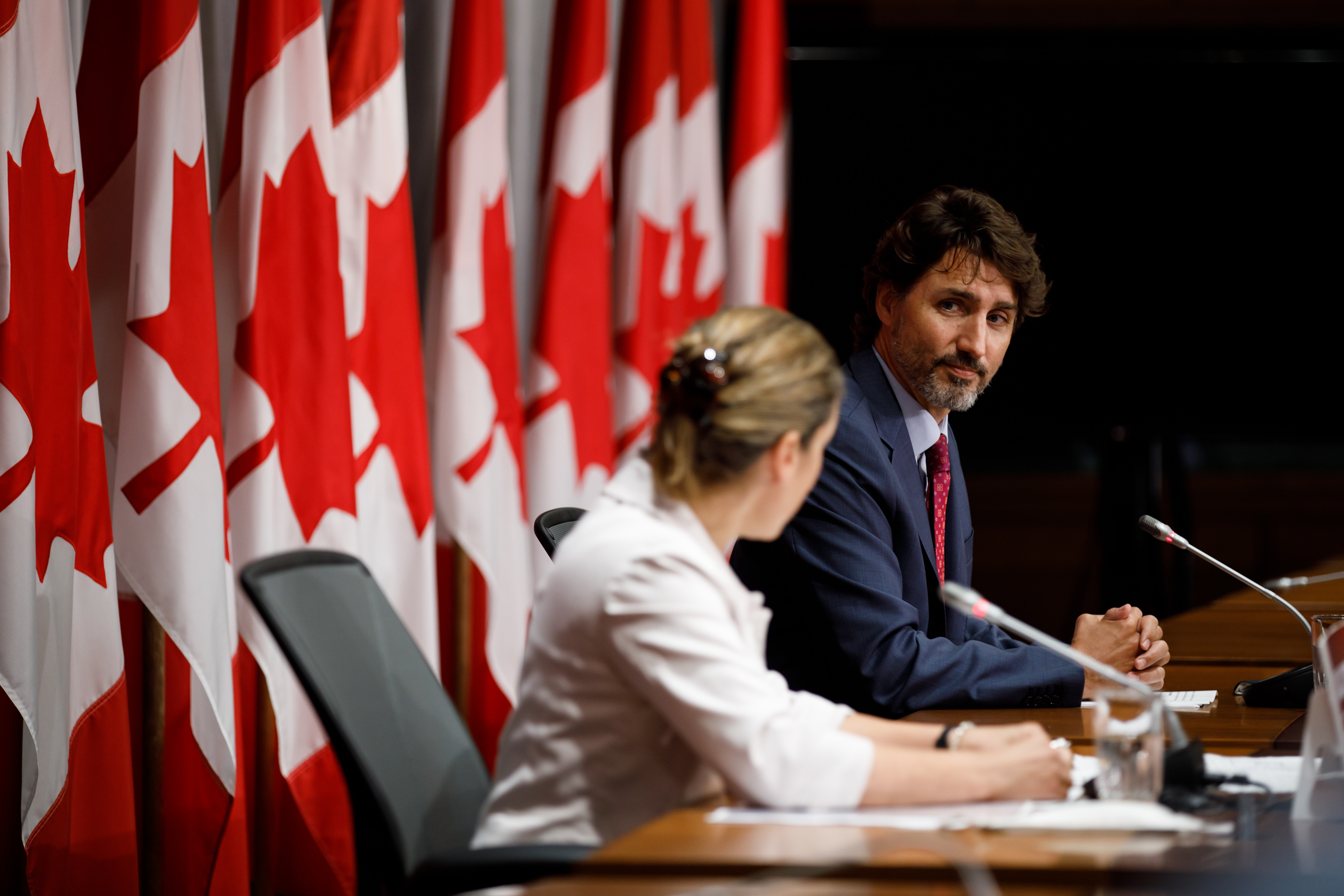Justin Trudeau agrees to interview with Le Soleil de Châteauguay

Justin Trudeau, the Prime Minister of Canada, agreed to a short telephone interview with Gravité Média on the morning of Wednesday, November 18th. On the menu: social housing and the Canada Emergency Response Benefit (CERB). Mr. Trudeau is currently doing a tour of local media in Canada. “It’s a way for me to stay connected to people. Before the pandemic, I travelled across the country quite a bit and I enjoyed doing that. That’s no longer an option. By talking with local media, I can speak to some of the local issues that don’t always make it into the national news.” Le Soleil de Châteauguay was able to speak to him for ten minutes, which provided enough time to tackle two issues. The CERB’s adverse effect While many Canadians appreciated the federal emergency assistance provided through the CERB at the beginning of the pandemic, the program complicated workforce shortages when companies reopened in the summer. Should changes have been made to the CERB prior to October to prevent it from negatively affecting local economies? “Perhaps,” Mr. Trudeau acknowledged. “You have to remember that the programs we needed were developed quickly. Our major challenge was keeping people at home.” He says the numbers indicate that many citizens returned to work in May and June. “A tremendous number of people left the CERB at that time. There were fed up of staying at home. Those who did remain at home often did so for family reasons, like if someone needed to care for a loved one, for example,” he stated. The Prime Minister emphasized that the new program that is currently in effect is now linked to unemployment insurance and training programs, which is “better aligned” with workforce needs. Canada’s Prime Minister believes that the federal government was able to provide concrete help to families and businesses during the pandemic. “People often think that the federal government is far removed from their realities. People saw that we were really there to help families and businesses through the wage subsidy. We will be in good shape once the pandemic is behind us,” he affirmed. The issue of affordable housing Recently, the federal government announced a 1-billion-dollar plan to hasten the construction of affordable housing. Half of that sum has been earmarked for 15 major Canadian cities like Montreal and Quebec City, where there are desperate needs. The other $500 million is for the provinces, municipalities and non-profit organizations that want to apply for funding quickly. The initiative’s objective is to create as many as 3,000 housing units throughout the country. Organizations applaud the program, but think that it does not even come close to fulfilling needs. In the greater Longueuil area, organizations estimate that there is a minimum shortfall of 2,500 housing units. In 2019, 200 households were on a waiting list at Châteauguay’s Municipal Housing Office. “We will do more. We announced $40 billion over ten years [in 2015], in our National Housing Strategy. It took longer than we had anticipated to sign all the agreements with the provinces. Quebec was the last to sign,” Mr. Trudeau indicated. Questioned as to whether the new program could be enhanced in the short-term, the Canadian Prime Minister emphasized that the federal government needed to work with the provincial government in this file. “Our goal is to do more, but that isn’t always easy. We need to work with Quebec, there are conversations about jurisdiction,” Mr. Trudeau noted. In a document published in November, the Federation of Canadian Municipalities stated that if the government committed $7 billion to create at least 24,000 new social housing units over the next seven years, it would put an end to the chronic homelessness that affects at least 27,000 Canadians. (Translation : Amanda Bennett)